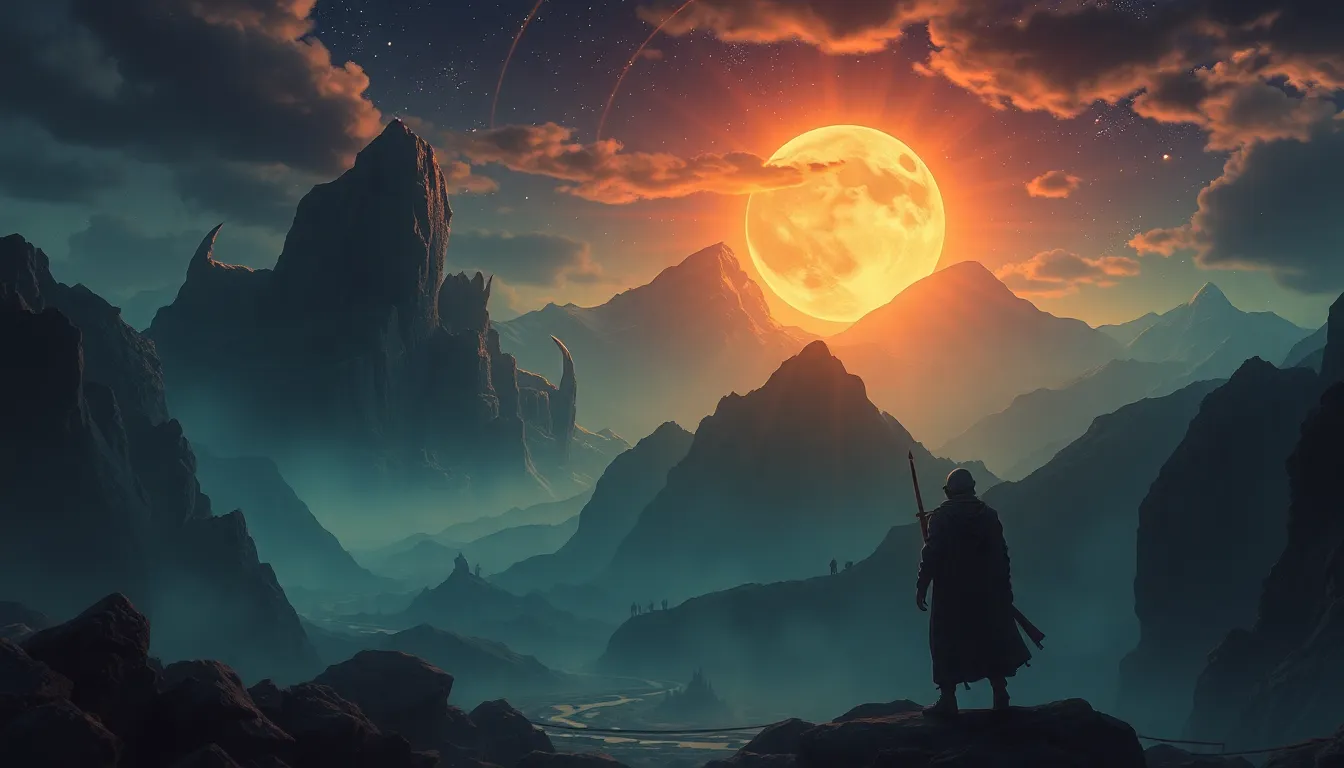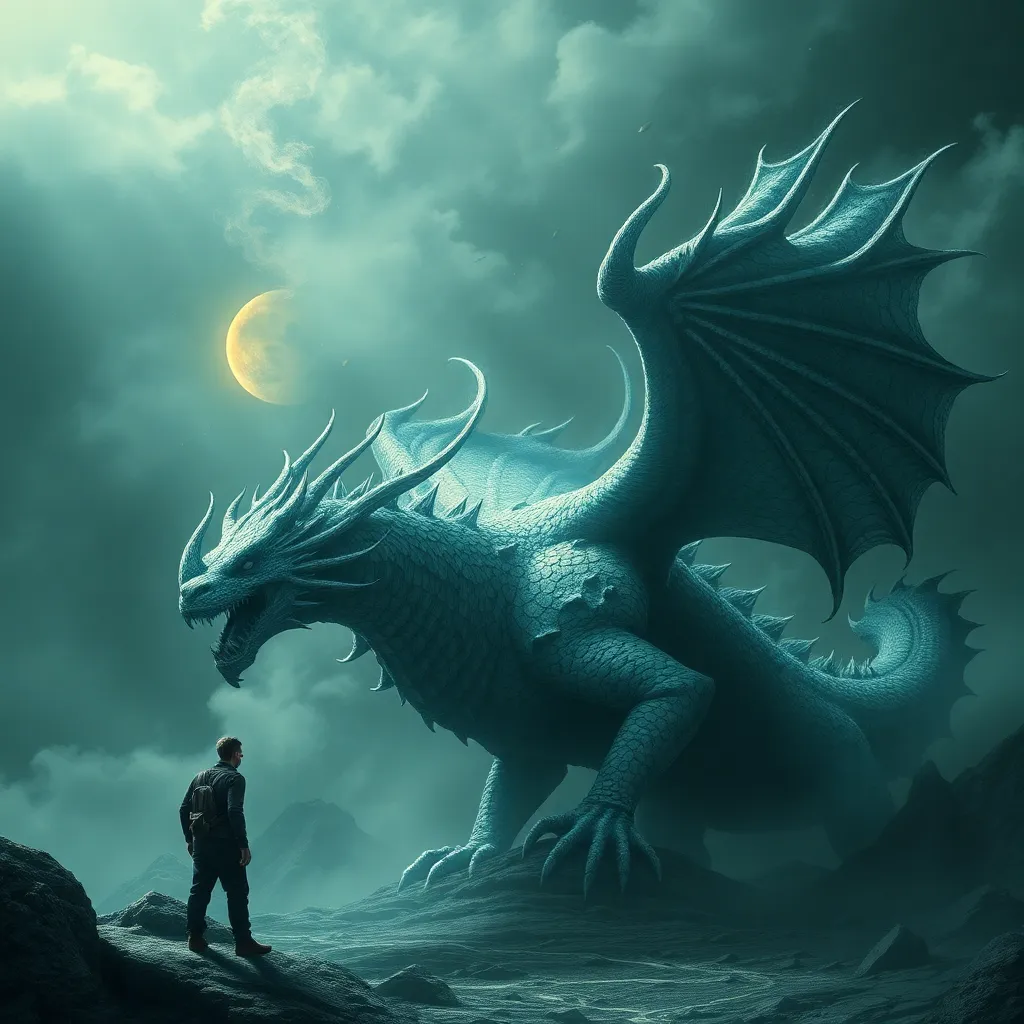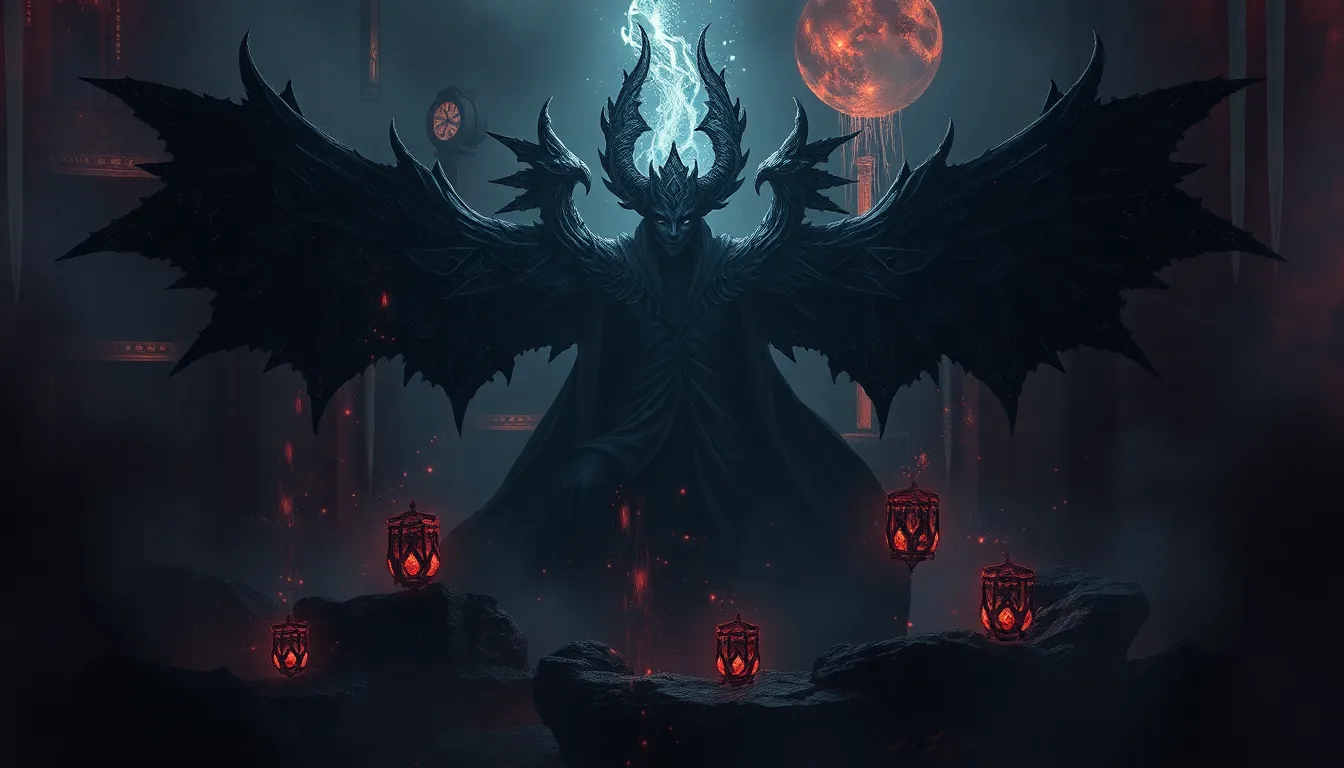The Myth of the Eternal Traveler: Legends of Infinite Journeys
I. Introduction
The concept of the Eternal Traveler is a fascinating and enduring myth that resonates across cultures and epochs. An Eternal Traveler is often depicted as a figure who wanders endlessly, cursed to roam the earth without finding peace or a final destination. This archetype has appeared in various forms throughout history, often embodying deep philosophical and existential themes.
From ancient civilizations to modern interpretations, the idea of the Eternal Traveler reflects humanity’s quest for understanding time, mortality, and the meaning of life. This article aims to explore the legends surrounding this myth, their origins, variations, and significance in our lives.
II. Historical Origins of the Eternal Traveler Myth
The myth of the Eternal Traveler has roots in ancient storytelling, where journeys often symbolized life’s trials and tribulations. Early civilizations crafted tales that encapsulated their values and beliefs through the lens of travel and exploration.
A. Ancient civilizations and their journey myths
- Mesopotamian tales: In Mesopotamian mythology, figures such as Gilgamesh embarked on epic journeys that explored themes of mortality and the quest for immortality.
- Greek mythology: The Greek hero Odysseus is another prime example, whose long voyage home after the Trojan War illustrates the struggles of human existence and the desire for belonging.
The role of storytelling has been pivotal in preserving these myths, allowing them to evolve while retaining their core messages. Over centuries, the Eternal Traveler has transformed, reflecting the changing values and concerns of societies.
III. Key Legends and Their Variations
Several key legends illustrate the concept of the Eternal Traveler, each with its unique narrative and cultural significance.
A. The Wandering Jew: Origins and interpretations
This legend tells of a Jewish man condemned to wander the earth until the Second Coming of Christ. His story raises questions about faith, redemption, and the consequences of one’s actions.
B. The Flying Dutchman: A cursed seafarer’s tale
The Flying Dutchman is a ghost ship that can never make port, symbolizing the eternal struggle against fate and the sea’s unforgiving nature.
C. The Legend of the Wandering Samurai
In Japanese folklore, the Wandering Samurai represents honor and the burden of duty, constantly traveling in search of purpose and redemption.
D. Other notable figures in eternal travel lore
- The Green Knight from Arthurian legend, who embodies the trials of self-discovery.
- Peter Pan, who represents the desire to escape the constraints of time and adulthood.
IV. Symbolism of the Eternal Journey
The Eternal Traveler is rich in symbolism, representing various themes that resonate deeply with the human experience.
A. Exploration of themes: Time, mortality, and destiny
The journey often reflects humanity’s struggle with the passage of time and the inevitability of death, prompting reflections on destiny and purpose.
B. The traveler as a metaphor for the human experience
The figure of the traveler serves as a metaphor for life itself—filled with uncertainties, challenges, and the quest for meaning.
C. The significance of the journey in personal growth and transformation
Ultimately, the journey signifies personal growth, transformation, and the accumulation of wisdom through experiences.
V. The Psychological Aspect of Eternal Travel
The archetype of the wanderer holds a significant place in psychology, representing more than just physical movement.
A. The archetype of the wanderer in psychology
Psychologically, the wanderer symbolizes the search for identity and belonging, often mirroring an individual’s inner struggles.
B. The impact of perpetual movement on the psyche
Perpetual movement can lead to feelings of dislocation and existential dread, as the traveler grapples with their place in the world.
C. Connections to existentialism and the search for meaning
This eternal journey resonates with existential themes, as individuals seek to find purpose and meaning in a seemingly indifferent universe.
VI. Cultural Impact and Modern Interpretations
The myth of the Eternal Traveler has permeated literature, art, and film, shaping modern narratives and cultural expressions.
A. The Eternal Traveler in literature and film
- Famous books and films: Works such as “The Alchemist” by Paulo Coelho and films like “The Secret Life of Walter Mitty” encapsulate the spirit of the eternal quest.
- Modern adaptations and reinterpretations: Contemporary authors and filmmakers continue to explore these themes, often reimagining the traveler’s journey in new contexts.
B. Influence on art and popular culture
The archetype has influenced various art forms, inspiring countless artists to depict the complexities of travel and exploration.
C. The myth in contemporary discourse
The Eternal Traveler remains relevant in discussions surrounding globalization, identity, and the human condition in an ever-changing world.
VII. The Eternal Traveler in Religion and Spirituality
Many religions incorporate the concept of eternal journeys into their teachings, emphasizing spiritual growth and transformation.
A. Spiritual journeys and the concept of reincarnation
In numerous belief systems, the idea of reincarnation reflects the eternal cycle of life, death, and rebirth, akin to the traveler’s never-ending journey.
B. Pilgrimages and sacred travels across different faiths
Many religions emphasize the importance of pilgrimage, where the journey itself holds spiritual significance, such as the Hajj in Islam and the Camino de Santiago in Christianity.
C. The connection between eternal travel and enlightenment
For many, the journey symbolizes the path to enlightenment, wisdom, and a deeper understanding of existence.
VIII. Critique of the Myth: Debunking the Eternal Traveler
While the myth holds significant allure, it is essential to examine the skepticism surrounding the concept of the Eternal Traveler.
A. Examination of skepticism surrounding the myth
Critics argue that the notion of eternal travel can romanticize escapism, overlooking the reality of human suffering and the need for stability.
B. Psychological explanations for the allure of eternal travel
Perpetual movement often appeals to those seeking freedom from societal constraints, but it can also lead to feelings of emptiness and alienation.
C. The dangers of romanticizing perpetual movement
Romanticizing the idea of the eternal traveler can obscure the value of roots, community, and the importance of belonging.
IX. The Future of the Eternal Traveler Myth
As society evolves, so does the myth of the Eternal Traveler, influenced by technological advancements and cultural shifts.
A. How technology and globalization are reshaping the myth
The rise of digital communication and global travel has transformed the way we understand journeys, creating a new narrative around the concept of exploration.
B. The role of virtual travel in modern interpretations
Virtual travel experiences have emerged as a modern interpretation of the eternal journey, allowing individuals to explore the world from their homes.
C. Predictions for the evolution of the myth in the digital age
As technology continues to advance, the myth may evolve to reflect new forms of connection, identity, and the search for meaning in a rapidly changing world.
X. Conclusion
The myth of the Eternal Traveler serves as a profound reflection on the human condition, encapsulating our struggles with time, identity, and purpose. By examining its origins, key legends, and cultural significance, we gain insight into our collective psyche and the timeless quest for understanding. Whether through ancient tales or modern narratives, the Eternal Traveler continues to inspire and challenge us, urging us to contemplate the journeys we undertake in our own lives.




